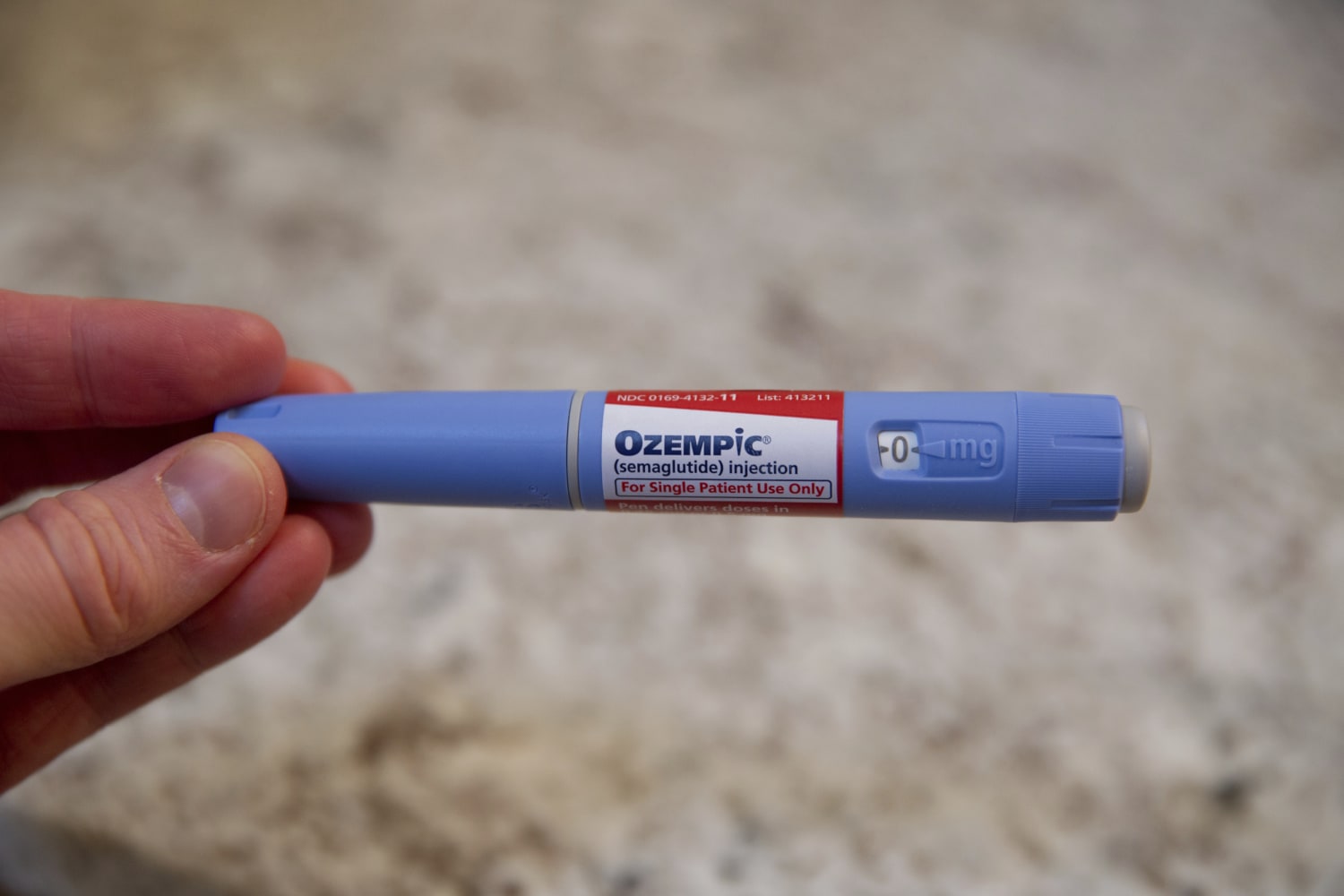Demand for weight loss drugs has soared over the last year, to the point that semaglutide — better known by the brand names Ozempic and Wegovy — has been in short supply at pharmacies nationwide. Doctors who treat obese patients are increasingly frustrated that the people who really need the injection medications aren’t getting them.
Seventy percent of Americans are overweight or obese and at increased risk for Type 2 diabetes and heart disease. According to the Centers for Disease Control and Prevention, non-Hispanic Black adults have the highest rates of obesity, followed by Hispanic adults.
However, Black adults, as well as uninsured or lower-income women, and other groups with high rates of obesity — the people whose health might benefit the most from significant weight loss — are the least likely to get the costly medications, obesity doctors say.
Ozempic, which is approved for people with diabetes but is prescribed off-label for weight loss, and Wegovy, which is approved for weight loss, can carry a price tag of more than $1,000 a month. Neither drug is covered for weight loss by most insurance plans.
“A majority of my patients can’t afford to pay $1,300 a month, especially for a medication that they need to be on long term,” said Dr. Veronica Johnson, an obesity specialist at Northwestern Medicine in Chicago. “As a Black woman and treating patients who look like me, knowing that a lot of Black women struggle with the disease of obesity, I, unfortunately, can’t treat a lot of my patients the best way that I would like to.”
Lack of access to this new class of weight loss drugs in such vulnerable groups is “infuriating,” said Dr. Jennifer Mieres, chief diversity and inclusion officer and a professor of cardiology at Northwell Health in New York.
“These are the communities with the highest burden of obesity, the highest burden of cardiovascular disease, and the highest death rate from cardiovascular disease,” Mieres said. “It’s a crime because heart disease can be preventable.”
Novo Norodisk, the maker of both drugs, said that 81% of its patients on Wegovy are women. The company didn’t break it down by race.
But those statistics don’t mean a majority of women who may need the drugs are getting them.
Latest news on weight loss drugs
‘The best we’ve ever seen’
Ozempic and Wegovy are the same drug, semaglutide, but come in different doses. They work as appetite suppressants and help control blood sugar levels by prompting the body to release insulin. Wegovy is approved as a weight loss drug for adults who have obesity, as well as people with a BMI of at least 27 who also have a weight-related condition, such as high blood pressure or high cholesterol. Studies have shown that Wegovy can cut body weight by 15%.
“These anti-obesity medications are the best we’ve ever seen,” said Dr. Shauna Levy, a specialist in obesity medicine and medical director of the Tulane Bariatric Center in New Orleans. “They’re a huge boost to our armamentarium of obesity treatments.”
That is, Levy said, only if patients can actually get them.
“Patients I see want their knees to feel better, their hips to feel better, their blood pressure to get better, their diabetes to get better,” Levy said. “But when they come in, I have to tell them, ‘I’m sorry, I’d prescribe this for you, but it’s going to be $1,200 a month because your insurance doesn’t cover it.’ It’s sad.”
That’s exactly what Levy told Tania Matoa, 26, of Metairie, Louisiana.
Matoa began to struggle with her weight after her son, Cailan, was born in 2021. She tried intermittent fasting, cutting carbs and adding aerobics to her exercise routine.
“I kept seeing the number go up on the scale,” she said. “I was like, clearly something is wrong.” She wanted help getting the extra weight off to reduce her chances of developing Type 2 diabetes.
“I may not have it right now, but it does run in my family. Almost every single member of my family has it,” Matoa said. “The whole point is that I don’t develop it, and I stay healthy.”

“Dr. Levy was like, ‘Well, ‘I have bad news,'” Matoa recalled. Though she has private insurance through her employer, Levy said the health plan would not pay for the new weight loss drugs. At 5’1″ and 182 pounds, Matoa’s body mass index is 34.4.
Weight loss surgery, however, is covered. But taking time off to undergo and recover from such a procedure is a nonstarter for Matoa.
“I have to work. I have to take care of my kid,” she said. “I can’t even take a couple of days off of work because I would go without pay. It’s just not an option.”
Are weight loss drugs covered by insurance?
The vast majority of health plans — especially those that serve older adults and low-income families — do not cover weight loss drugs.
Medicare pays for bariatric surgery but not obesity medications, including drugs for anorexia, weight loss and weight gain, a spokesperson for the Centers for Medicare & Medicaid Services told NBC News.
And fewer than 20 Medicaid programs nationwide pay for them, according to a 2022 report from the Urban Institute, a nonprofit research organization.
AHIP, a group that represents the insurance industry, maintains that there is not yet enough evidence to show the drugs are effective options for long-term weight loss.
“Evidence suggests that patients may not be able to maintain their weight loss once they stop taking the drug,” said David Allen, an AHIP spokesperson. “There is also limited long-term evidence to show that patients on these medications see lasting benefits in reducing risk of co-morbidities like diabetes or cardiovascular disease.”
Dr. C. Noel Bairey Merz, scientific advisor to the Women’s Heart Alliance and director of the Barbra Streisand Women’s Heart Center at Cedars-Sinai Heart Institute in Los Angeles, said that the drugs’ effect on weight loss may not reflect their true health benefits. They were developed as type 2 diabetes drugs. As such, the medications “clearly have a cardiovascular benefit,” regardless of a person’s weight loss, she said.
To be clear, semaglutide is not the answer for everyone with obesity. It can cause serious side effects, such as vomiting and nausea. As with treating other diseases, different types of therapy may be necessary.
Still, the massive gap in insurance coverage for weight loss medications is rooted in weight discrimination, said James Zervios, vice president and chief of staff for the Obesity Action Coalition.
“As a society, we still very much have the mindset of obesity as a cosmetic issue, and not a metabolic issue or a disease,” Zervios said.
Most patients who seek a doctor’s help for their weight are often simply advised to “try to eat less and move more” or to start a food diary, he said.
“It’s not to say that behavioral components don’t have a place in the treatment plan,” Zervios said, “but it can’t be the only thing.”
Follow NBC HEALTH on Twitter & Facebook.
Source: | This article originally belongs to Nbcnews.com









